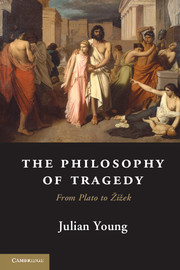Book contents
14 - Arthur Miller
Published online by Cambridge University Press: 05 June 2013
Summary
Arthur Miller (1915–2005) was an American playwright, essayist and political activist. His fame was established by Death of a Salesman (1949) in which, after a disappointed, financially unsuccessful life, Willy Loman kills himself in a car crash in order that his (actually hopeless) son can start a business with the insurance money. A second major success was The Crucible (1953), a dramatisation of the trial and execution for witchcraft of a group of women in Salem, Massachusetts, in 1692–3. As noted earlier, the play is an allegory of McCarthyism, the hysterical persecution of alleged Communists in the United States during the 1950s. It was written specifically as a protest against his former friend, Elia Kazan (A Streetcar Named Desire, On the Waterfront, East of Eden), who appeared before the House Un-American Activities Committee to denounce fellow actors and directors as Communist sympathisers. In 1956 Miller was himself called before the committee – accompanied by his wife, Marilyn Monroe, whom he had married in 1951 – and had his passport withdrawn. In 1956 he scripted Monroe’s last film, The Misfits, after the completion of which Clark Gable died, Montgomery Clift was lost to drug addiction and Monroe to a mental asylum. Miller and Monroe divorced in 1961, and she died of an overdose of prescription drugs the following year.
Miller was not a philosopher. However, his essay ‘Tragedy and the Common Man’, which first appeared as an article in the New York Times on 27 February 1949, addresses nearly all of the central questions that have concerned philosophers of tragedy, and so, as promised, I have temporarily promoted him to the position of honorary philosopher. Since the essay appeared in the same year as Death of a Salesman, it must have been intended as an exposition of the theoretical foundation on which the play was constructed.
- Type
- Chapter
- Information
- The Philosophy of TragedyFrom Plato to Žižek, pp. 246 - 253Publisher: Cambridge University PressPrint publication year: 2013



